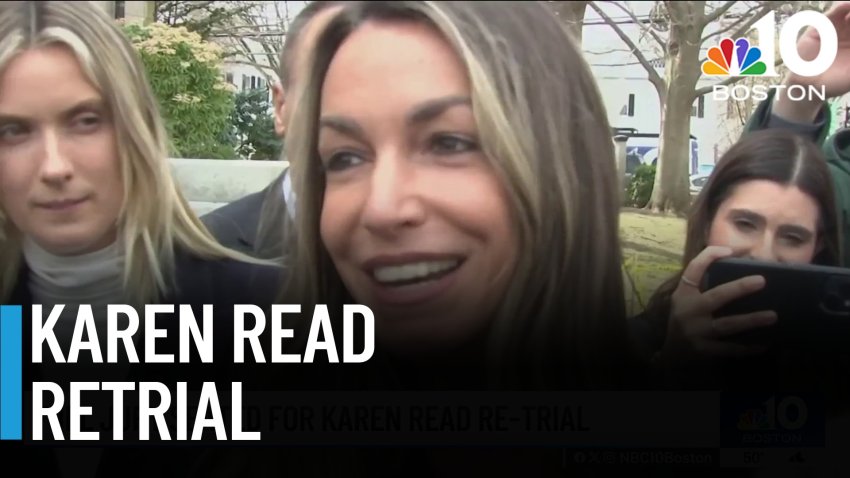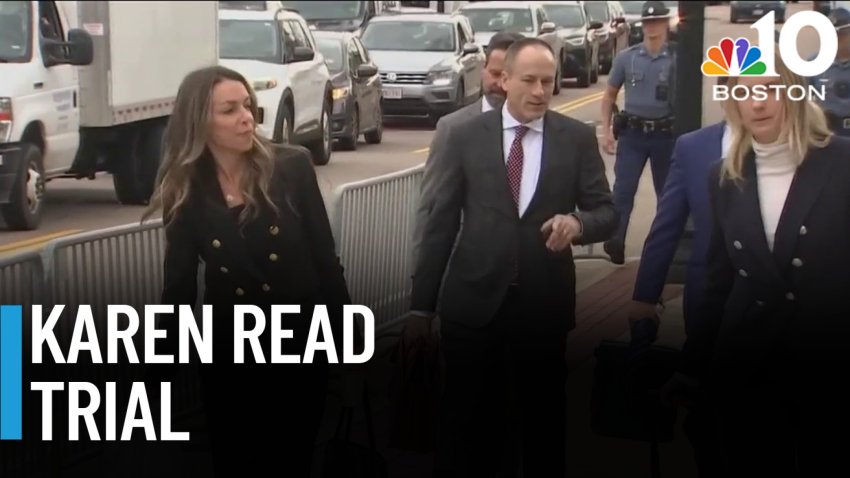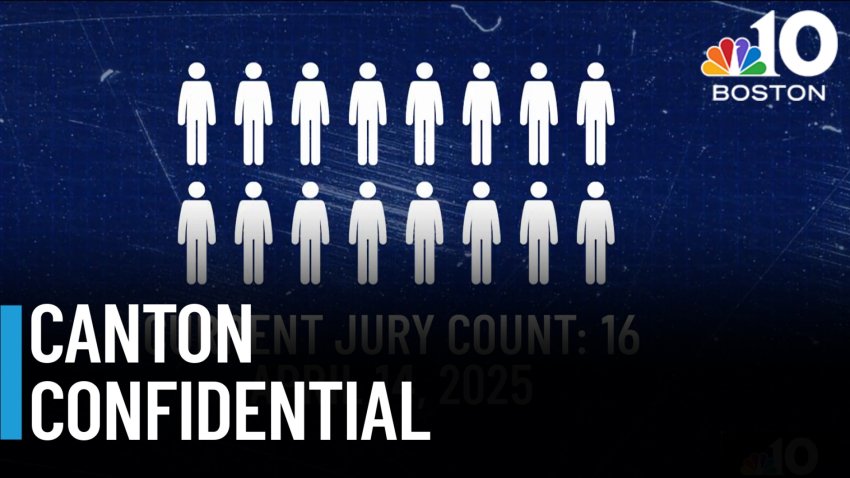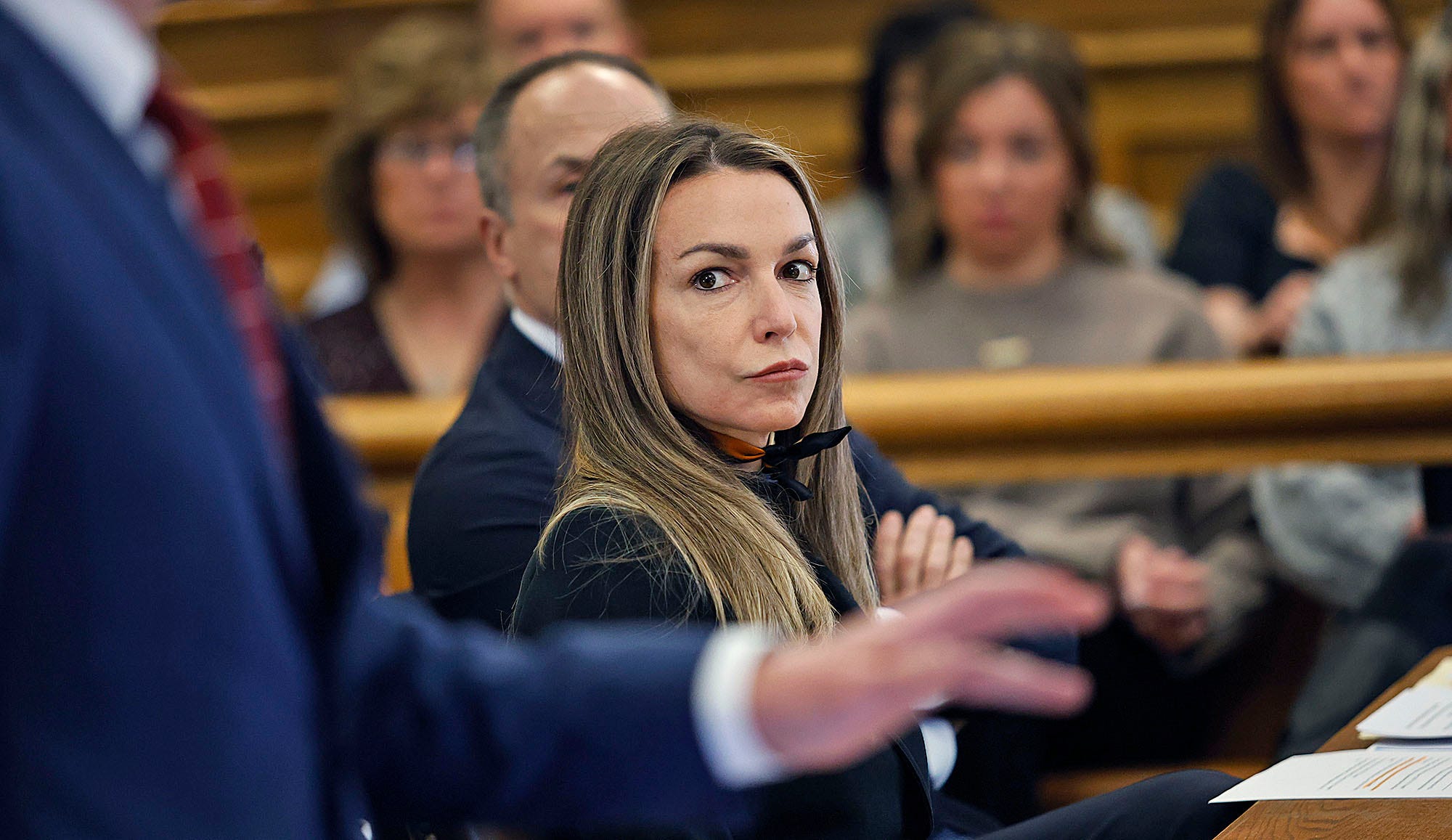Jury selection for the Karen Read retrial is complete, after 10 days — twice as long as it took in the first trial. Here’s what she said after court, with opening statements on the horizon.
Plus, we ask legal analyst Peter Tragos and NBC10 courtroom insider Sue O’Connell what they think will be different this time around.
The full jury for the Karen Read retrial has been selected, after 10 days and more than 500 people screened in jury selection.
Opening statements in the trial will follow next week in Norfolk Superior Court. A hearing to argue motions was set for Wednesday.
WATCH ANYTIME FOR FREE
Stream NBC10 Boston news for free, 24/7, wherever you are. |
Nine women and nine men were seated by Tuesday. After the trial, 12 of those jurors will be selected to deliberate the three charges against Read in the death of her boyfriend, Boston Police Officer John O'Keefe: manslaughter, motor vehicle homicide and leaving the scene of a crash.
Read denies the charges, claiming she's been framed. Her allegations of a cover-up have attracted massive attention to the case.
Get updates on what's happening in Boston to your inbox. Sign up for our News Headlines newsletter.

The court had been stuck at 16 jurors for days. Judge Beverly Cannone originally said she wanted to see at least 16 jurors before moving forward with the trial, but raised the number to 18 — jurors commonly drop out throughout the course of trials, and Read's is expected to last six to eight weeks.
This jury selection process took twice as long as it did in the first trial, which ended in a hung jury.
“You do have to be worried about stealth jurors who are really under the radar but want to get on,” said NBC10 legal analyst Michael Coyne. “Want to have their few moments of fame or even just their voice in the result here.”
From the start, legal experts have discussed the challenge of seating a jury in a case as public and controversial as Read's.

One issue that may be discussed at Wednesday's hearing is special prosecutor Hank Brennan's plan to use comments from Read’s interviews to poke holes in her case, including during his opening statements.
Outside of court on Tuesday, the defendant said bring it on: "I would not have said anything that I wouldn’t say again."
Coyne called it "highly unusual" for a murder defendant to have spoken in so many interviews, and he said it could hurt her at trial.
“There are ways for many of her statements that are inconsistent that are there in the media, and that's why most criminal lawyers will tell their client just zip your lips and don’t say anything,” he said.




